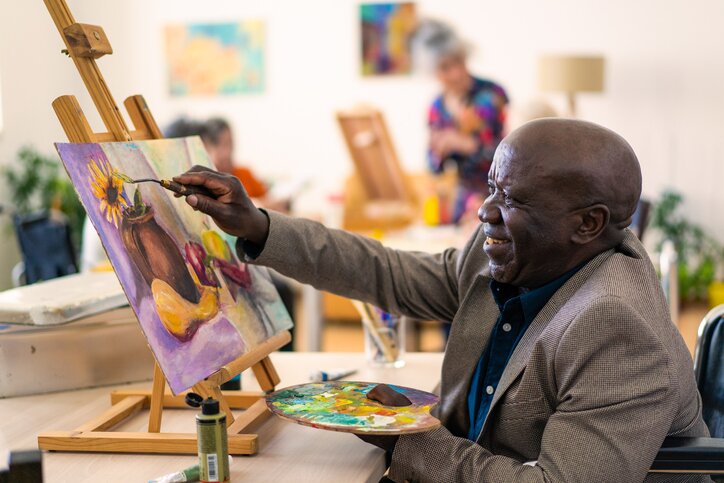Does A Healthier Brain Begin with Having a Hobby? The Experts Say Yes.
Whether it’s doing crosswords or baking bread, there’s mounting evidence that having a hobby contributes to a healthier brain.
Hobbies are more than just a way to fill up free time; they are creative outlets that keep the mind engaged and, in some cases, can even improve cognitive function. If it’s been a while since you tapped into a fun leisure-time activity, it may be time to take up a new hobby. Just like exercising the body improves our physical health, we need to exercise our minds by engaging in challenging activities. Recent research conducted by Cell Journal suggests that when we learn new things and try our hand at stimulating activities, our brains create new neural pathways in response. As we age, this rejuvenation of brain cells is a key factor in reducing the risk of cognitive decline and memory loss.
Here are some of our favorite hobbies that aren’t just fun—they may contribute to a healthier brain, too.

Learn a new language.
It’s never too late to master another language. With online classes and apps like Duolingo, you can pick up the basics right from the comfort of your own home. There are a number of positive cognitive outcomes associated with learning a language later in life. In fact, learning a second language has been linked with decelerated brain aging and a decreased risk of dementia.
Get puzzled.
Who doesn’t love a good jigsaw? Studies show that solving jigsaw puzzles has a positive impact on visuospatial cognitive awareness in older people. This ability to identify visual and spatial relationships among objects is critically important as it reduces the likelihood of falling. Jigsaw puzzles can also improve short-term memory and problem-solving skills, as well as combat cognitive decline. Another great thing about jigsaw puzzles is their impressive versatility. Choose from endless sizes, subjects, and degrees of difficulty. And, you can do them alone or as a social activity enjoyed with friends.
Tune in to an instrument.
Learning to play a musical instrument is good for the brain in many ways. It helps to calm jangled nerves and can elevate mood. In addition, learning a new musical instrument can improve memory. It’s not uncommon for people to struggle with memory loss and forgetfulness in later life. The New England Journal of Medicine conducted a five-year study on senior citizens and found that playing a musical instrument was strongly associated with a reduced risk of dementia. Studies have shown that there are significant differences in brain structure between musicians and non-musicians of the same age.
Cultivate your green thumb.
Gardening is an excellent stress reliever that improves mood and boosts mental health. It also provides huge brain benefits by supporting cognitive function. A 2019 study published in the International Journal of Environmental Research and Public Health revealed that seniors who regularly performed 20 minutes of low- to moderate-intensity gardening exhibited significantly increased levels of brain nerve growth, which is key to preserving its function.
Tap into your artsy side.
Creating artwork such as painting, sculpting, or drawing creates new connections between brain cells. Research has shown that engaging in artistic endeavors can help prevent brain issues that often come with aging, such as cognitive decline and memory loss.
The Alzheimer’s Association says it’s important to challenge our minds, particularly as we age. Think of it as cognitive weightlifting: engaging in activities that require mental flexing and strength. If you’re looking to pick up a new hobby, there’s no shortage to choose from. Regularly taking part in leisure-time activities is a great way to have fun and create a healthier brain, too.
Having a hobby can reduce stress, improve health, and support cognitive function. If you would like more information about how to support brain health or if we can be of assistance in any way, we are here for you. Please contact us anytime.
About Vaughn Greene Funeral Services: For more than 25 years, Vaughn Greene Funeral Services has been providing a ministry of care to Baltimore’s African American community. As a leading local, minority- and family-owned provider, we promise to provide our highest level of service and respect to families who entrust us to honor their loved ones. For more information about our funeral, cremation, memorial, repast, and grief counseling services, please call us at 410.655.0015 or visit us online at https://vaughncgreene.com/.







Comments